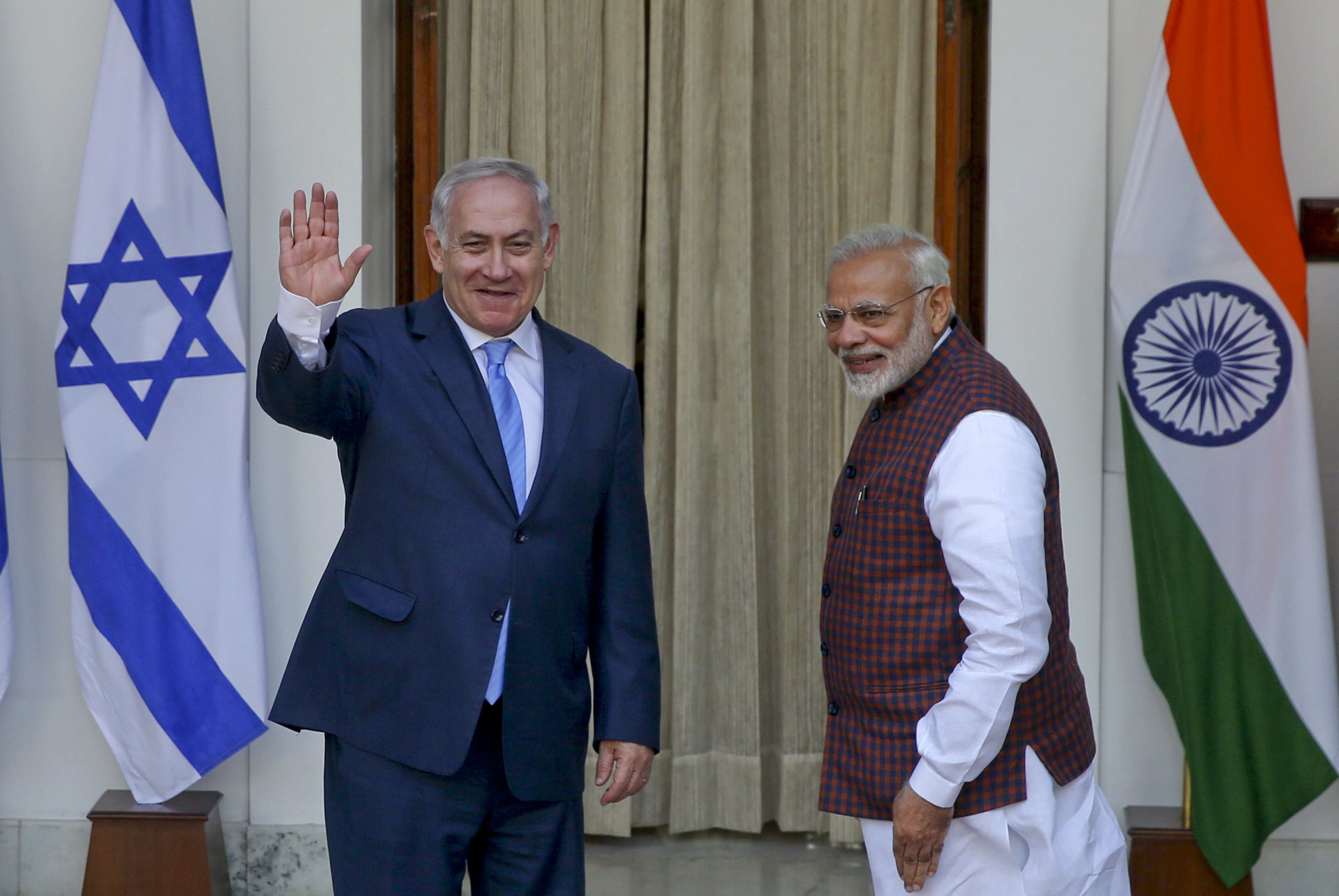
India watching Iran-Israel conflict closely amid growing fears over trade and energy risks
- New Delhi has urged de-escalation on both sides, reflecting deep worries about regional instability
- Analysts say energy imports are a major cause for concern, in addition to trade and security risks
“India’s stakes are high. Depending on how the crisis unfolds, India may be forced to make certain choices,” said Harsh V Pant, vice-president of studies and foreign policy at the Observer Research Foundation.
“Trade and energy security are top priorities. If the conflict worsens, the lives of Indian citizens and economic security will be affected,” Pant warned.
Analysts say India’s swift calls for de-escalation following the drone strikes, as well as Foreign Minister Subrahmanyam Jaishankar’s phone calls to both his Iranian and Israeli counterparts, demonstrate how concerned New Delhi is about the situation.

At a public event on Monday, Jaishankar stressed the government’s concern over “an enormously sensitive region” and urged calm. “I’m only saying that for the rest of the world and definitely for India, we would like to find ways of de-escalating the situation,” the Indian minister added.
India, the world’s third-largest oil consumer and home to 1.4 billion people, imports over 80 per cent of its oil from the Middle Eastern countries to meet domestic demand. Given its low strategic oil reserves, which could last between one and three months, its energy import requirements are both vast and urgent.
India’s trade ministry said it would refrain from policy interventions for now over the Israel-Iran conflict, opting to wait and assess the situation further.
According to analysts, several Indian interests are at stake should the conflict escalate further, with instability in the Red Sea posing a particular concern. The seizure of a cargo vessel with Indian sailors near the Strait of Hormuz by Iran’s Revolutionary Guards on April 13 underscored the impact on Indian interests.
A female crew member, Ann Tessa Joseph, was released by Iranian forces and returned home on Thursday. Diplomatic efforts are ongoing for the safe return of the remaining 16 crew members.
Around 100,000 Indians reside in Israel and 4,000 in Iran. A recent bilateral agreement between India and Israel, easing the travel of Indian construction workers to Israel, now faces uncertainty. The first batch of workers left for Israel in early April.
India’s trade unions question need for more workers in Israel amid war
However, an all-out war between Israel and Iran is still unlikely, according to Talmiz Ahmad, a former Indian diplomat with extensive experience in West Asia.
“If it occurs, not just India but the entire global community would suffer severe consequences,” said Talmiz Ahmad, a former Indian diplomat who previously served as the country’s ambassador to Saudi Arabia, Oman and the UAE.
“If Israel’s response is short and sharp, and is meant to be a demonstration out of self-interest and to maintain its image, it will not have any major impact outside the two countries,” Ahmad told This Week in Asia on Friday after reports on Israel’s counterstrike.
“The biggest challenge for India would be if there’s a region-wide conflagration. If the conflict is contained between Iran and Israel, this will be low-key.”
‘India’s place in the world’
Modi’s historic visit to Israel in 2017 – the first-ever by an Indian prime minister – paved the way for burgeoning bilateral trade, which nearly doubled from $5.56 billion in 2018-19 to $10.7 billion in 2022-23.
“Indian-Iranian trade has declined in the last decade, with ties less strategic than when Iran was a major crude supplier to India,” said Jon Alterman, senior vice-president and director of the Middle East Program at the Centre for Strategic and International Studies.
India’s Modi slammed for his ‘complete solidarity’ with Israel over Palestinians
The Middle East hosts more than 9 million Indians across multiple countries.
For years, India has navigated a delicate balance between Israel and Iran without taking sides.
The potential eruption of large-scale conflict in the Middle East could profoundly impact the security of millions of Indians working there and disrupt India’s trade, Alterman said.
He added: “New Delhi’s diplomatic priority needs to be focused on India’s place in the world. As competition increasingly dominates the strategic thinking of the great powers, the precise way India aligns while preserving flexibility is an increasingly complex task.”

